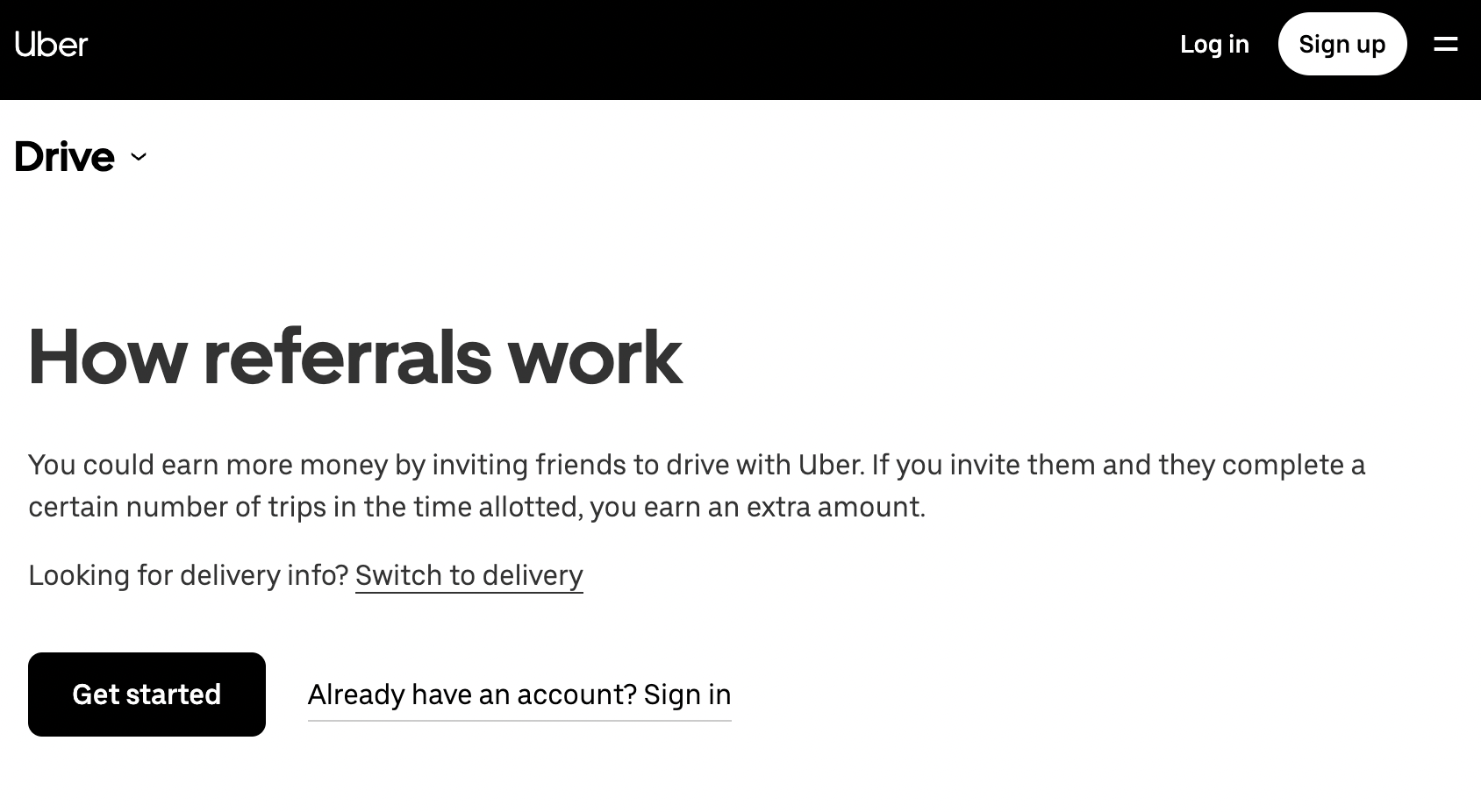
Studies have revealed that 50% of consumers rely on online reviews as much as personal recommendations from friends and family.
Now read it again.
Friends and family.
This means that when people are deciding whether to purchase a product or service, they value the opinion of complete strangers as much as their closest circle.
Not only that, according to Northwestern University’s Spiegel Research Center, displaying reviews on your website can increase the conversion rate by 270%.
That’s how powerful social proof is. A bit crazy, isn’t it? But still understandable. In today’s digital landscape, where trust and credibility are vital, social proof is a great tool. By leveraging the positive experiences of others, you can build trust, influence purchasing decisions, and significantly boost your conversion rates.
In this article we’ll show how you can effectively use social proof to transform your business.
Table of Contents
What Exactly is Social Proof?
Social proof is a psychological and social phenomenon where people conform to the actions and opinions of others under the assumption that those actions and opinions reflect the correct behavior in a given situation.
In the context of marketing and consumer behavior, social proof refers to the influence that the actions and recommendations of others have on an individual’s purchasing decisions. This can include reviews, testimonials, case studies, endorsements, and user-generated content.
The concept of social proof is rooted in social psychology and was popularized by Robert Cialdini in his book “Influence: The Psychology of Persuasion.“ Cialdini identifies social proof as one of the six key principles of persuasion, alongside reciprocity, commitment, authority, liking, and scarcity.
Several psychological mechanisms explain the effectiveness of social proof:
- Uncertainty reduction: When individuals are uncertain about a decision, they tend to look to others’ behavior to guide their own. This is especially true in unfamiliar situations or when making significant purchases. Seeing others endorse or use a product reduces perceived risk and uncertainty
- Bandwagon effect: The bandwagon effect is the tendency for people to adopt certain behaviors or follow trends because others are doing so. This is driven by the desire to fit in and be part of the majority. In marketing, this is seen when potential customers are influenced by the high number of people endorsing or purchasing a product.
- Similarity: People are more likely to be influenced by others who are similar to them. This is why testimonials and reviews from individuals who share demographic characteristics with the target audience are particularly effective. The similarity increases the relevance and credibility of the social proof.
- Authority and expertise: Endorsements from perceived experts or authorities in a field carry significant weight. Consumers trust the judgment of knowledgeable individuals and are more likely to follow their recommendations. This is why influencer marketing and expert testimonials are powerful forms of social proof.
Advantages of Leveraging Social Proof
1. Builds Trust and Credibility
Social proof builds trust and credibility by leveraging the positive experiences and endorsements of others. When potential customers see that others have had positive interactions with a product or service, they are more likely to trust the brand. This trust is crucial in converting hesitant visitors into confident buyers.
2. Influences Buying Decisions
Social proof significantly influences buying decisions by reducing the perceived risk associated with a purchase. For example, seeing positive reviews or testimonials can reassure potential customers that they are making the right choice.
3. Enhances Perceived Value
When a product or service is endorsed by others, especially experts or celebrities, it enhances its perceived value. This perception can make the product more appealing, even if it is priced higher than competitors. For instance, a tech gadget endorsed by a well-known technology reviewer will likely be perceived as more valuable and trustworthy.
4. Encourages Customer Engagement
Social proof encourages customer engagement by creating opportunities for customers to share their experiences. User-generated content, such as photos, videos, and reviews, not only provides authentic proof of a product’s value but also fosters a sense of community. Brands that actively encourage and showcase user-generated content can significantly increase engagement and loyalty.
5. Increases Conversion Rates
The ultimate advantage of social proof is its ability to increase conversion rates. When potential customers see that others have had positive experiences with a product or service, they are more likely to be persuaded to take action. By showcasing positive experiences and endorsements, businesses can effectively persuade potential customers to take action.
As we mentioned in the introduction, studies have found that displaying reviews can increase conversion rates by up to +270%. This demonstrates how powerful social proof can be in guiding consumer behavior.
6. Supports Brand Awareness and Reputation
Social proof helps in building brand awareness and enhancing the overall reputation of a business. When customers share their positive experiences on social media or review platforms, it increases the visibility of the brand.
Influencer endorsements and high-profile testimonials can further amplify this effect, reaching a broader audience and establishing the brand as a trusted name in the industry.
7. Improves Customer Retention and Loyalty
Social proof not only attracts new customers but also helps in retaining existing ones. Positive reviews and testimonials can reassure current customers that they made the right choice, encouraging repeat purchases and fostering brand loyalty.
Referral programs that leverage social proof by rewarding customers for bringing in friends and family can also enhance customer retention.
8. Boosts SEO and Online Presence
User-generated content and positive reviews contribute to fresh and relevant content for your website, which can improve search engine rankings. High engagement rates from social proof elements, such as reviews and social media mentions, can also boost your website’s visibility. As a result, your online presence strengthens, making it easier for potential customers to find and trust your brand.
Types of Social Proof and Examples
Expert Social Proof
Expert social proof involves endorsements or approvals from credible experts in a specific field. This type of social proof is powerful because it leverages the authority and expertise of individuals who are recognized and respected in their domain.
For instance, a nutritionist endorsing a particular brand of vitamins on their blog or a website can significantly influence consumer trust and purchasing decisions. Similarly, tech reviewers recommending a specific software solution can add substantial credibility, encouraging potential customers to make a purchase.
Celebrity Social Proof
Celebrity social proof leverages the influence and popularity of well-known profiles to promote products or services. When a popular figure endorses a product, it can create a strong desire among their fans and followers to try the product themselves.

For example, when a famous athlete promotes a brand of sportswear on their social media channels, it not only raises awareness but also boosts sales as fans aspire to use the same products. Similarly, a celebrity endorsement for a beauty product can drive significant traffic and conversions for the brand.
User-Generated Content
User-generated content involves feedback, testimonials, reviews, and displays from actual users of a product or service. This form of social proof is highly effective because it comes from everyday people, making it relatable and trustworthy.

For instance, e-commerce websites often feature moderated customer reviews and ratings on product pages, helping potential buyers make informed decisions. Service platforms may showcase testimonials from satisfied customers on their homepage, providing reassurance to new visitors about the quality and reliability of the service.
Friends and Family Social Proof
Friends and family social proof involves recommendations from people we know and trust. These personal endorsements are often considered the most reliable form of social proof. Companies can leverage this by creating referral programs that encourage existing customers to recommend their products to friends and family.

For example, ride-sharing services like Uber have successfully used referral systems where users receive incentives for referring the service to their friends, leading to increased adoption and loyalty.
Ratings and Reviews
Ratings and reviews are essential forms of social proof that provide quick insights into the quality and satisfaction associated with a product or service. For example, platforms like Yelp and Google Reviews allow customers to rate and review businesses, helping others make informed decisions. High ratings and positive reviews can significantly enhance a product’s credibility and attract new customers.
Certifications and Awards
Certifications and awards from reputable organizations serve as powerful social proof by validating a product’s quality and credibility. For example, a software company displaying a “Certified Partner” badge from a recognized authority like Microsoft can reassure potential customers of its reliability. Awards such as “Best Startup of the Year” showcased on a company’s website can further enhance its reputation and attract new customers.
How to Leverage Social Proof in Your Marketing Strategy
Effectively leveraging social proof in your marketing strategy involves strategically placing and promoting various forms of social proof to build trust and credibility with potential customers. Here are several ways to do this:
1. Collect and Showcase Customer Testimonials
- Actively solicit feedback from your customers through follow-up emails, surveys, and direct requests. Make it easy for customers to leave testimonials by providing simple forms or prompts on your website.
- Display testimonials prominently on key pages of your website, such as the homepage, product pages, and landing pages. Use multimedia formats, including written quotes, photos, and video testimonials, to add authenticity and relatability.
2. Create and Share Detailed Case Studies
- Develop comprehensive case studies that outline a customer’s problem, how your product or service provided a solution, and the results achieved. Include specific data and metrics to add credibility.
- Publish these success stories on your website, share them in blog posts, and promote them through email marketing campaigns. Case studies can also be used in sales presentations and proposals to demonstrate the effectiveness of your solutions.
3. Leverage User-Generated Content (UGC)
- Run campaigns that motivate customers to share their experiences with your products on social media using specific hashtags. Offer incentives, such as discounts or giveaways, for participants.
- Repost UGC on your social media channels, incorporate it into your website’s galleries, and feature it in your marketing materials.
4. Highlight Reviews and Ratings
- Encourage customers to leave reviews on your website, third-party review sites, and social media platforms. Follow up with customers post-purchase to remind them to leave a review.
- Integrate reviews and star ratings into your product pages, and create dedicated testimonial sections. Highlight positive reviews in your marketing materials and social media posts. Amazon, for instance, prominently displays customer reviews and ratings, which significantly influence purchasing decisions.
5. Utilize Influencer and Celebrity Endorsements
- Find influencers and celebrities whose audience aligns with your target market. Use tools like Influencity or AspireIQ to identify potential partners.
- Engage with influencers through sponsored posts, product placements, and collaborative content creation. Ensure the endorsements are authentic and align with the influencer’s brand.
- Promote these endorsements on your website, social media channels, and in your advertising campaigns.
6. Display Real-Time Activity and Statistics
- Use tools like Proof or FOMO to display real-time notifications of customer activity, such as recent purchases, sign-ups, or reviews.
- Place these notifications on high-traffic pages like your homepage, product pages, and checkout pages to create a sense of urgency and encourage action. This tactic leverages the bandwagon effect, showing potential customers that others are actively engaging with your brand.
7. Showcase Certifications and Awards
- Apply for relevant industry certifications and awards. Highlight any recognitions from reputable organizations.
- Display badges and certificates on your website, especially on your homepage and product pages. Include these recognitions in your marketing materials and email campaigns. Software companies often display certification badges from recognized authorities like Capterra or Clutch to reassure potential customers of their credibility.
8. Incorporate Social Media Mentions
- Foster social media engagement by encouraging customers to mention your brand in their posts. Use branded hashtags to track mentions.
- Highlight positive social media mentions on your website and in your marketing materials. Share user posts on your own social media channels to amplify their reach. A tweet from a satisfied customer or an Instagram post tagging your brand can serve as powerful social proof.
9. Create a Referral Program
- Develop a referral program that rewards existing customers for bringing in new customers. Offer incentives such as discounts, freebies, or exclusive access to new products.
- Promote your referral program through email marketing, social media, and on your website. Clearly explain the benefits and how customers can participate. Uber’s referral program is a classic example where users are incentivized to refer the service to friends and family, leading to increased user acquisition and loyalty.
Maximize Conversions with Pathmonk Accelerate’s Timely Social Proof
Pathmonk Accelerate is an advanced AI-powered CRO platform that customizes the customer journey for each website visitor. By detecting real-time intent, Pathmonk Accelerate delivers tailored microexperiences, including social proof, to enhance engagement and drive conversions. This ensures that visitors receive the right information at the right time, increasing the likelihood of completing a purchase.
This is how Pathmonk Accelerate leverages your social proof:
- Real-time behavior analysis Pathmonk Accelerate’s AI analyzes visitor behavior in real-time to understand their intent. This includes tracking page views, time on site, and interaction patterns. By analyzing these behaviors in real-time, Pathmonk Accelerate can predict the next most likely action of the visitor. This allows the platform to determine the optimal moments to display social proof, ensuring it has maximum impact.
- Display of customized microexperiences The platform delivers personalized microexperiences that match each visitor’s journey. For example, if a visitor is hesitant at the checkout stage, Pathmonk Accelerate might display recent purchase notifications to create urgency and confidence. If a visitor is browsing product details, showcasing user reviews and ratings can help in decision-making.
- +50% increased conversions on average: The strategic use of Pathmonk Accelerate tailored interactions has been shown to significantly boost conversion rates. On average, businesses using Pathmonk Accelerate experience a +50% increase in conversions. This impressive improvement underscores the power of well-timed and contextually relevant social proof in influencing purchasing decisions and enhancing the overall user experience.
Increase +180% conversions from your website with AI
Get more conversions from your existing traffic by delivering personalized experiences in real time.
- Adapt your website to each visitor’s intent automatically
- Increase conversions without redesigns or dev work
- Turn anonymous traffic into revenue at scale

If you want to give Pathmonk a go, you can:
- Try our interactive personalized demo (it’s free and doesn’t involve Sales calls 😉)
- Book a product tour with our team (recommended if you want to know more about the product)
Or directly set up your account and start boosting your conversions (perfect for busy marketers that know what they need)

